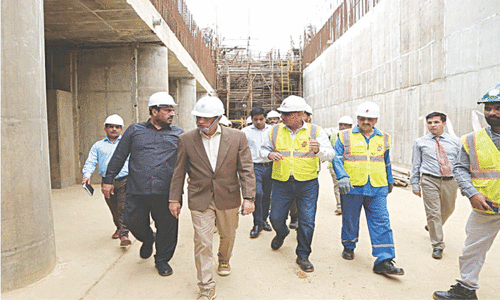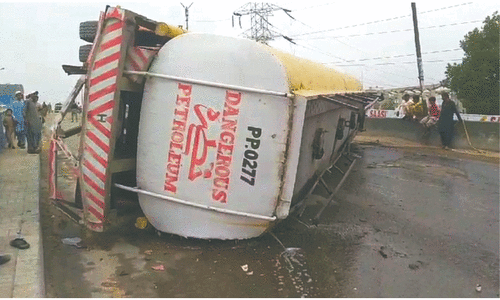KARACHI: The Sindh government on Thursday announced partnership with the Frontier Works Organisation (FWO) to revive the Karachi Circular Railway and tasked the military engineering organisation with building 10 underpasses and flyovers on the route of the local train service, a senior official said.
The announcement came at a meeting held to review the progress on development work of the KCR project in the wake of Supreme Court’s orders.
The participants in the meeting chaired by Sindh Transport Minister Awais Qadir Shah decided to expedite the pace of construction of the structures which were required to be rebuilt after the old ones turned obsolete or had been declared dangerous.
“The meeting decided to build some 10 underpasses and flyovers which were marked in different areas on the route of the KCR through the FWO,” said a statement issued after the meeting.
“The meeting also set aside five billion rupees for those structures and reviewed progress of the project under the directives of the Supreme Court. The meeting was attended by senior officials of the Sindh transport ministry and the FWO.”
The Supreme Court last month had directed the provincial authorities to expedite work on underpasses, overhead bridges and fencing at the level crossings to ensure that the operation of the KCR was not obstructed because of road traffic.
In February, the court had directed the Pakistan Railways to revive and operate the KCR within six months and asked the provincial government to build necessary infrastructure like underpasses and overhead bridges at the level crossings.
During last month’s hearing, the railways secretary had informed the court that the KCR track had “almost” been cleared of encroachments.
At this, the chief justice had regretted that the time granted by the court was over, but the KCR had not yet been revived.
“The KCR was commissioned in 1964, originally to help employees of the Pakistan Railways travel between their jobs — at and around the city and cantonment railway stations — and their residences in Karachi’s eastern neighbourhoods,” said a Sindh transport ministry official.
“The service became a full circle of 44km in 1970 and connected Karachi’s four main work areas: the port, the Sindh Industrial Trading Estate (SITE), the city’s central commercial areas such as Saddar and the Landhi Industrial Area. The KCR remained the public transport of choice for the people of Karachi till 1984 when the number of its trains was reduced.”
Reasons for the move included lack of maintenance and repair, a yawning gap between rising expenditure due to higher fuel and operational costs and decreasing revenue due to subsidised tickets and the government’s inability to spend money on improvement of tracks and stations, he added.
Published in Dawn, September 4th, 2020














































Dear visitor, the comments section is undergoing an overhaul and will return soon.